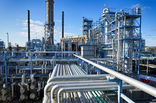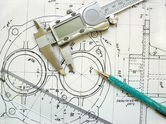
Mechanical Engineering

Mechanical engineering is a diverse field that involves the design, analysis, and manufacturing of mechanical systems and devices. It combines principles of physics, materials science, and engineering mechanics to create solutions for various applications, from machinery and vehicles to HVAC systems and robotics. Mechanical engineers play a vital role in innovation, sustainability, and improving efficiency across industries, ensuring that products function reliably and meet user needs.
Mechanical Engineering Services We Provide

Process Piping Engineering
Process Piping Engineering involves designing and analyzing piping systems that transport fluids and gases in industrial settings, ensuring compliance with safety standards and operational requirements. Engineers select appropriate materials and perform stress analyses to prevent potential failures and enhance system reliability. This discipline is essential for the efficient and safe operation of industries such as oil and gas, chemical processing, and power generation.

Design of Machinery
Design of Machinery involves the creation and optimization of mechanical systems and components to meet specific functional requirements. This field combines principles of engineering, mechanics, and materials science to develop machinery for various applications, from industrial equipment to consumer products. Designers focus on factors such as performance, efficiency, reliability, and manufacturability while employing advanced tools like CAD software for modeling and simulation. Attention to detail in the design process is crucial to ensure safety and compliance with industry standards. Ultimately, effective machinery design enhances productivity and innovation across multiple sectors.

Hydraulics Engineering
Hydraulics Engineering is the branch of engineering that focuses on the behavior of fluids in motion and at rest, particularly in relation to systems and structures that utilize hydraulic power. It involves the design and analysis of various systems, including pipelines, dams, and water treatment facilities, to ensure efficient fluid transport and management. Engineers in this field apply principles of fluid mechanics to solve problems related to water supply, drainage, and environmental impacts, emphasizing safety and sustainability in their designs.

Pressure Vessels & Heat Exchangers
Pressure vessels and heat exchangers are specialized containers designed to hold gases or liquids at high pressures and/or temperatures, crucial in industries like oil and gas and chemical processing. Their design requires strict adherence to safety standards, focusing on material selection and structural integrity to prevent failures. Engineers use advanced modeling techniques to ensure these vessels can withstand extreme conditions while incorporating safety features like pressure relief valves.

Custom Design of Machinery
Custom Design of Machinery involves creating tailored mechanical systems to meet specific operational needs and challenges faced by a client or industry. This process includes thorough analysis of requirements, innovative engineering solutions, and the use of advanced design tools to ensure optimal performance and efficiency. By focusing on unique specifications, custom-designed machinery enhances productivity and can significantly improve processes across various sectors, from manufacturing to construction.

Pipeline Engineering
Pipeline Engineering focuses on the design, construction, and maintenance of pipelines used to transport fluids, gases, and solids over long distances. This discipline involves assessing factors such as terrain, pressure, flow rates, and material selection to ensure safe and efficient transport. Engineers in this field also analyze environmental impacts, implement safety measures, and ensure compliance with regulatory standards to protect both the infrastructure and surrounding ecosystems. Effective pipeline engineering is essential for industries like oil and gas, water supply, and waste management, where reliability and safety are paramount.

Equipment Sizing Specifications
Equipment Sizing Specifications involve determining the appropriate dimensions and capacities of machinery based on operational requirements and performance criteria. This process considers factors like flow rates, pressure, and material properties to ensure efficient and safe operation. Accurate sizing is essential for optimizing performance and preventing issues such as bottlenecks or energy inefficiencies across various industries. We provide custom sizing specifications and datasheets for any piece of equipment.

Fluid Power
Fluid power is a technology that uses pressurized fluids to generate, control, and transmit power. It encompasses both hydraulic systems, which utilize liquids, and pneumatic systems, which use gases, to perform tasks like lifting, pushing, or rotating objects. This versatile field is widely applied in industries such as manufacturing, construction, and automotive, enhancing efficiency and precision in various operations.

























